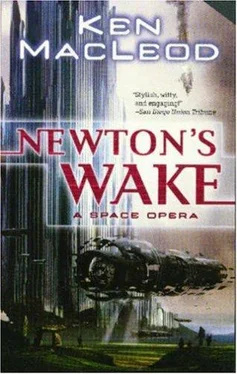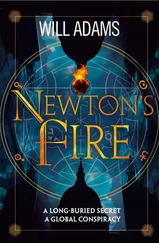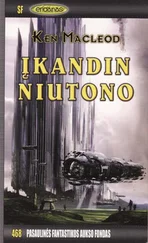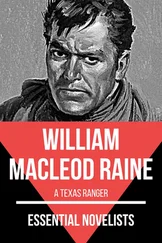‘We cannot run them in a virtual environment,’ Yamata was saying. ‘It is very dangerous.’
Jacques Armand and Kevin Carlyle glanced at each other. They both saw Lucinda and Lamont; Kevin gestured to them to wait. The leaders were not taking interruptions.
‘You might set off another Rapture?’ said Armand.
‘Not exactly,’ said Yamata. ‘It is just that, when you run uploads to solve a problem, they soon, in a matter of seconds, form what is called a civ. The uploads replicate and develop relationships. Most of them go very bad. You sometimes get an entire virtual planet of four billion people devoted to building prayer wheels in an attempt at a denial of service attack on God.’
‘Does it ever work?’ asked Kevin, sounding interested.
Even the Knight creased a smile. ‘In the nature of things we would not know,’ he said. ‘However, within the virtual universe, it does work, in that the god of that universe is its initiator, who has to stop the experiment because of exponential waste of bandwidth.’
‘All right,’ said Armand, clearly feeling that bandwidth was being wasted right here. ‘Is resurrection acceptable to you, in the circumstances?’
Yamata hesitated a moment. ‘Yes,’ he said. ‘The consequences in another life will be borne by me, not by those resurrected. They will understand, and I … will accept the consequences.’
Lucinda detected a note of complacency in his humility. This was a man who felt his karmic balance was well in the black.
Kevin sighed. ‘And I’ll dae the same for Ian. Let the old bastard sort it out with his God.’
Yamata leaned forward. ‘His God has a difficulty with resurrection?’ He sounded incredulous. ‘What is this religion?’
‘It’s called Christianity,’ said Kevin stiffly. ‘It has a jealous God. Keeps a bit ae a monopoly on resurrection, that one. Disnae like others muscling ontae His patch.’
‘Ah,’ said Yamata. ‘When your venerable relative is resurrected I shall endeavour to show him the light.’
Aye, you just try it, you heathen bugger! Lucinda tried to suppress a snort. The sound was enough to turn heads back to where she and Lamont stood.
‘Yes?’ said Kevin, as if he didn’t know fine well they were there, and had been there for minutes. This business of not being interrupted was just showing off his new importance, Lucinda thought. It was not something she would have taken from anybody but a Carlyle. She swallowed the surge of annoyance and introduced the pilot. That got their attention all right.
L
amont walked through the camp with a feeling of rising panic. Had he ever been among so many people before? He knew he had, but he could not believe it. People stared at him, and he was never sure whether or not to look back. He had thought the rule might be to look at people only when in conversation with them, but that still created anomalies. It would have to be revised later. For now he looked, as far as possible, only at the starship. Doing so felt like cooling water flowing over his brain. The ship was so large that only the close proximity of the relic and of the asteroid made it proportionately small. It was about two hundred metres long and across, fifty thick. Every line on it was either straight or an arc. The unbroken matt black of its surfaces made some of its lines, and therefore all of its shape, difficult to see. One would have to walk around it several times, seeing at at many angles, before one could form a clear mental image of it.
That he did, somewhat to the bemusement of his three companions. When he set out on the second circuit they stood and waited for him, looked at him very oddly as he commenced the third, and with relief when he completed it.
‘I see it now,’ he told them. ‘It’s like—’ His hands circled, chopped.
‘A portion of a very large sphere,’ said Lucinda Carlyle. ‘I could have told you that.’
‘Telling would not have done it,’ said Sam Yamata, in a tone that struck Lamont as kind.
‘Come on,’ said Armand, ‘let’s go into the ship.’
Yamata bowed, held out his hand. Lamont walked up the rubber-ridged ramp into the ship. At the top he stopped and looked around, astonished. It was more than spacious: it did not feel like being inside an enclosed space. The air smelled fresh and fragrant, the ventilation a breezy susurrus like wind in distant branches. The ceiling was high, with the colour and luminosity of a white cloud. It was just high enough, about five metres, to make it seem like a sky when your eyes weren’t focused on it. The outdoor illusion was compounded by the grass-like covering of the floor, springy underfoot, and the trellised or potted plants and small trees that defined work areas and passageways. There were few flowers, all of them apparently incidental rather than decorative. The most colourful features were the ornamental fish in aquaria here and there. The furniture and instrumentation were spare in line and plain in aspect; there was a distinctly masculine minimalism about the whole great space and its subdivisions that resonated with a tang, very faint, on the air: when the Carlyle woman walked up the ramp Lamont could almost hallucinate the pheromonal clash. She smiled at him in a way he didn’t understand. He smiled back and looked away quickly.
‘This way, please,’ said Yamata.
As they walked along a passageway they passed broken aquaria, but there was no broken glass on the floor, merely patches of a darker colour on what might have been grass, but wasn’t. Out of the corner of his eye Lamont glimpsed a subtle movement in the fibres, like cilia. Nobody was about. Lamont began to suspect the ship was empty, but after a turn they found themselves in a wider clear space, a sort of atrium, above which the ceiling formed a glowing cupola. Its circumference was terraced into low, rounded-edged steps, on which a man and a woman lounged, talking to each other with some tension and intensity. Their voices ceased as the party’s footsteps approached, and they looked up.
Lamont had been forewarned about these two, but seeing the woman was still a shock. He was glad the ship was no longer, and not yet, in contact with him. He was certain its reaction to his unwitting physiological responses would have been jealousy. Of all the eyes he’d seen here, he found hers easiest to meet. Her handshake was, almost to his surprise, warmer than flesh. Campbell Johnstone’s was cold and firm. His eyes were organic, hers were not, but there was a similarity in their gaze, as though they sought, and found, something similar in his.
‘We’ve been told about you,’ Morag Higgins said. ‘We’re impressed.’
Lamont sat down on the floor. Armand and Carlyle sat on the seat a little way around the curve, Yamata at a small but noticeable further distance.
‘Thank you,’ said Lamont. He placed his palms on the floor behind him—it felt disturbingly like fur, rather than grass—leaned back and gazed at the opalescent hemisphere above for a moment. Then he sat up and forward with his forearms on his knees and, fixing his gaze on first Higgins, then Johnstone, said: ‘As I understand it, from conversation with our friends here, I’ve gained a small measure of indirect acquaintance with the posthuman, through my, ah, discussions with the ship. The two of you have greater experience with this kind of tech, and the three of us are being asked to cooperate in establishing communication with, or control over, some level of consciousness within the relic. At the same time, we have different loyalties. You, Higgins, are working for the Carlyles; Johnstone for the Knights. I presume it’s my job to fight a corner for Eurydice.’
‘But—’
‘That’s—’
‘Please—’
Johnstone laughed as the three voices spoke at once. ‘Reckon you got it in one,’ he said. He stood up. ‘The lab’s this way.’
Читать дальше












